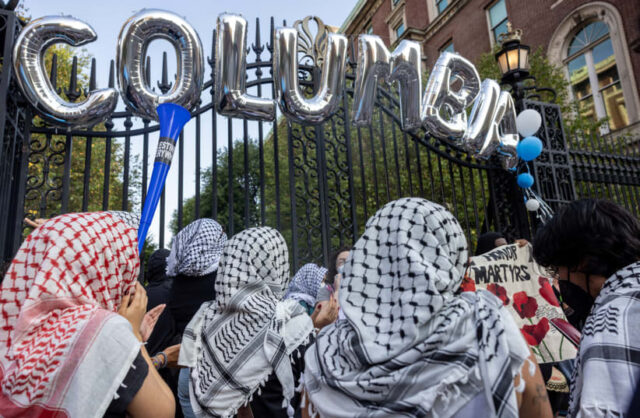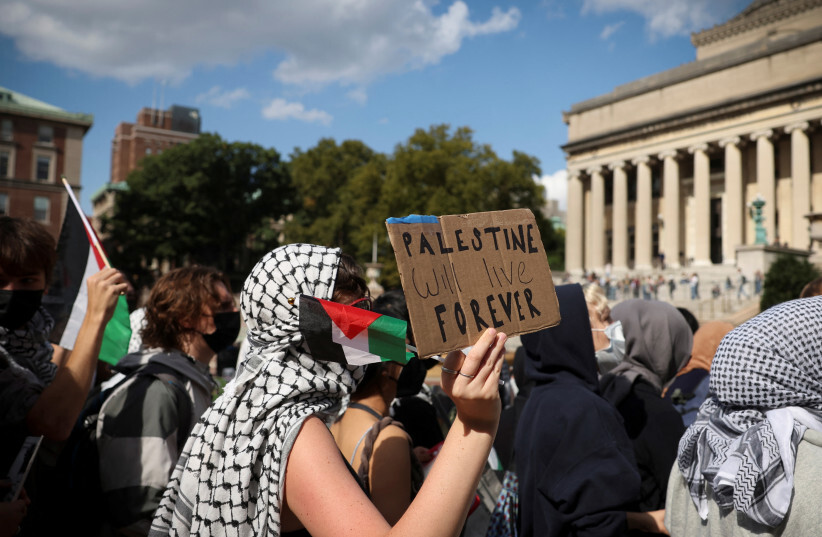
Mohsen Mahdawi, a prominent Palestinian student leader and Columbia University activist, was arrested Monday by Department of Homeland Security (DHS) agents during what was supposed to be a routine U.S. citizenship interview. The arrest has ignited a legal battle and public outcry, with supporters, lawmakers, and civil rights advocates rallying in his defense.

Mahdawi, a 35-year-old long-time U.S. resident born in the West Bank, was detained in Colchester, Vermont, sparking accusations of politically motivated retaliation tied to his pro-Palestinian activism. According to court filings and supporters, Mahdawi’s arrest is seen as a targeted attempt to silence dissent, raising serious concerns about free speech and due process.
Federal Judge Issues Temporary Protection
Later the same day, U.S. District Court Judge William Sessions III issued an order barring Mahdawi’s removal from Vermont or the United States while the court reviews his habeas corpus petition. The filing challenges the legality of his arrest, claiming that it violates both constitutional rights and procedural fairness.
According to the petition, federal authorities may attempt to revoke Mahdawi’s 10-year-old green card under provisions of the 1965 Immigration and Nationality Act—a move his legal team says is clearly retaliatory and without legal merit.
Political Support Grows
A wave of support from progressive lawmakers quickly followed. In a rare joint statement, Senator Bernie Sanders, Senator Peter Welch, and Congresswoman Becca Balint condemned the arrest as “illegal” and called for Mahdawi’s immediate release.
“He was at the final step in his citizenship process. Arresting him now is not only unjust but appears to be punishment for exercising his constitutional right to peaceful protest,” the lawmakers wrote.
A Life of Advocacy and Academic Excellence
Mahdawi has lived in the United States since 2014 and has an extensive academic record, having studied computer engineering at Birzeit University, followed by computer science degrees from Dartmouth College and Lehigh University. In 2021, he transferred to Columbia University to pursue a degree in philosophy and was set to begin a Master’s program in International Affairs this fall.
Beyond academics, Mahdawi is widely known for his activism and interfaith outreach. At Columbia, he founded the Columbia University Buddhist Association and led it for two years, emphasizing nonviolence and dialogue. He also co-founded Dar: Palestinian Student Society alongside fellow activist Mahmoud Khalil, focusing on cultural celebration and political awareness.
Mahdawi, who identifies as a Palestinian Buddhist, has consistently advocated for a peaceful resolution to the Israeli-Palestinian conflict. In a 2021 Instagram post, he wrote:
“I am so touched by the Jewish community that is able to see the oppression and to support the human rights and liberation of my Palestinian people. Be mindful that Judaism is not Zionism, and that so many Jews in the United States are opposing the apartheid and the discrimination of the state of Israel.”
The petition argues that Mahdawi poses no threat to public safety, has no criminal record, and that his detainment serves no purpose other than to penalize him for his activism.
Public Response and Ongoing Protests
The People’s Forum, a progressive advocacy group, has called for a protest in New York City on Tuesday, labeling the arrest “illegal” and part of a broader trend of government suppression of pro-Palestinian voices.
Supporters say Mahdawi’s case is emblematic of a growing concern: that student activists, particularly those of Middle Eastern descent, are increasingly at risk of surveillance, arrest, or deportation based on their political beliefs.
What’s Next?
With the court now reviewing Mahdawi’s petition, a legal showdown is underway that could set significant precedent on the rights of lawful permanent residents to engage in political speech without fear of deportation.
For now, Mahdawi remains in federal custody, but his case continues to rally activists, civil rights groups, and political leaders who argue that democracy demands protecting even the most dissenting of voices.



